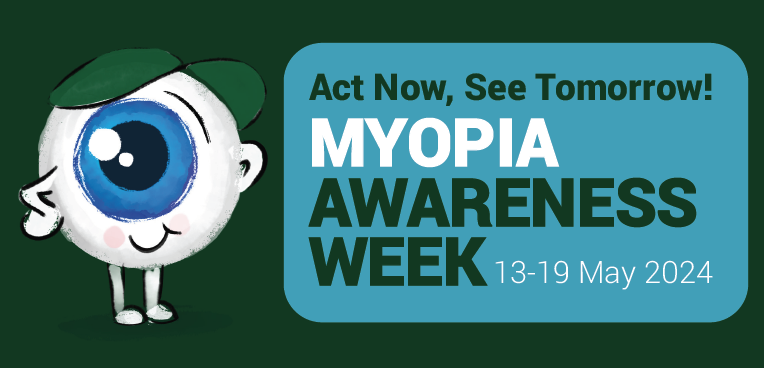Myopia Awareness Week returns, with a call to ECPs to include myopia treatment as an essential part of their patients’ eye health care.
SYDNEY, Australia – BHVI, an Australian not-for-profit organization with an international focus on vision research, has announced today the launch of Myopia Awareness Week for 2023 – a global initiative relaunched in 2021, to bring attention to the growing epidemic of myopia in children across the world.
Myopia, also known as nearsightedness, is among the most common ocular disorders worldwide and is a leading cause of visual impairment in children.[1] Studies have predicted that the global prevalence of myopia will rise from 28% of the world’s population, or two billion people in 2010, to 50% of the world’s population, or five billion people in 2050.[2] Uncorrected myopia is a leading cause of blindness worldwide.[3]
This year, Myopia Awareness Week is from the 22nd. to the 26th of May. A range of educational and awareness resources for practitioners, parents and advocates of myopia awareness will again be provided by BHVI with a focus this year on making myopia management an essential part of child eye health. This year, BHVI is asking all ECPs, parents and advocates to ‘Keep An Eye On Myopia’ – promoting the need make myopia management essential for children, to aid in the global effort to slow the progression of myopia.
With treatment options advancing every year, increasing findings from leading bodies like the International Myopia Institute and GMAC providing further evidence-based research for slowing myopia progression, it is past-time for eye care professionals to include myopia management as an essential part of patient eye health. Enabling ECPs to easily understand what treatment options are available, alongside knowing what the symptoms, risks and prevalence are of myopia, is key to enabling ECPs to have conversations with patients about making myopia management an essential part of their eye health.
Resources and campaign information can be found at bhvi.org/maw2023.
“In the last few years, there has been an incredibly concerted effort from leading researchers and producers of eye health technology to develop robust treatment methods for slowing myopia progression. We are now at a critical stage in the effort to curb myopia, where we have the tools to create meaningful change. It is now time to engage the entire eye health community, advising them of not just the importance, but how they can treat myopia in their practice with their afflicted patients – putting to use the incredible bodies of research and advancements in technology that are pushing the case for a world where half the population doesn’t need to be impacted by this debilitating eye disease,” said Yvette Waddell, CEO, BHVI. “At BHVI, we are thrilled to be able to bring together all world leaders in myopia research during these exciting times, and incredibly appreciative of the support we receive from the industry during Myopia Awareness Week in ensuring this global issue is tackled through a globally united effort.”
ENDS
About BHVI
BHVI is an Australian not-for-profit organization with an international focus on vision research. Founded by the late Professor Brien Holden, its headquarters are located on the campus of its affiliate, the University of New South Wales (Kensington, Sydney, NSW). BHVI designs, translates and evaluates new technologies and enhances existing products. Its development portfolio includes vision correction designs that target myopia, presbyopia, hyperopia and astigmatism. BHVI also conducts research in dry eye and eye comfort. BHVI has a comprehensive intellectual property portfolio. It supports the ophthalmic sector with market development initiatives and myopia management education. For more information, visit www.bhvi.org.
[1] Mehta N, Wen A. Myopia: A Global Epidemic. Retina Today. September 2019.
[2] Holden BA, Fricke TR, Wilson DA, et al. Global Prevalence of Myopia and High Myopia and Temporal Trends from 2000 through 2050. Ophthalmology 2016;123(5):1036–42.
[3] Flaxman SR, Bourne RRA, Resnikoff S, et al. Global causes of blindness and distance vision impairment 1990–2020: a systematic review and meta-analysis. Lancet Glob Health 2017;5(12):e1221–e34.


